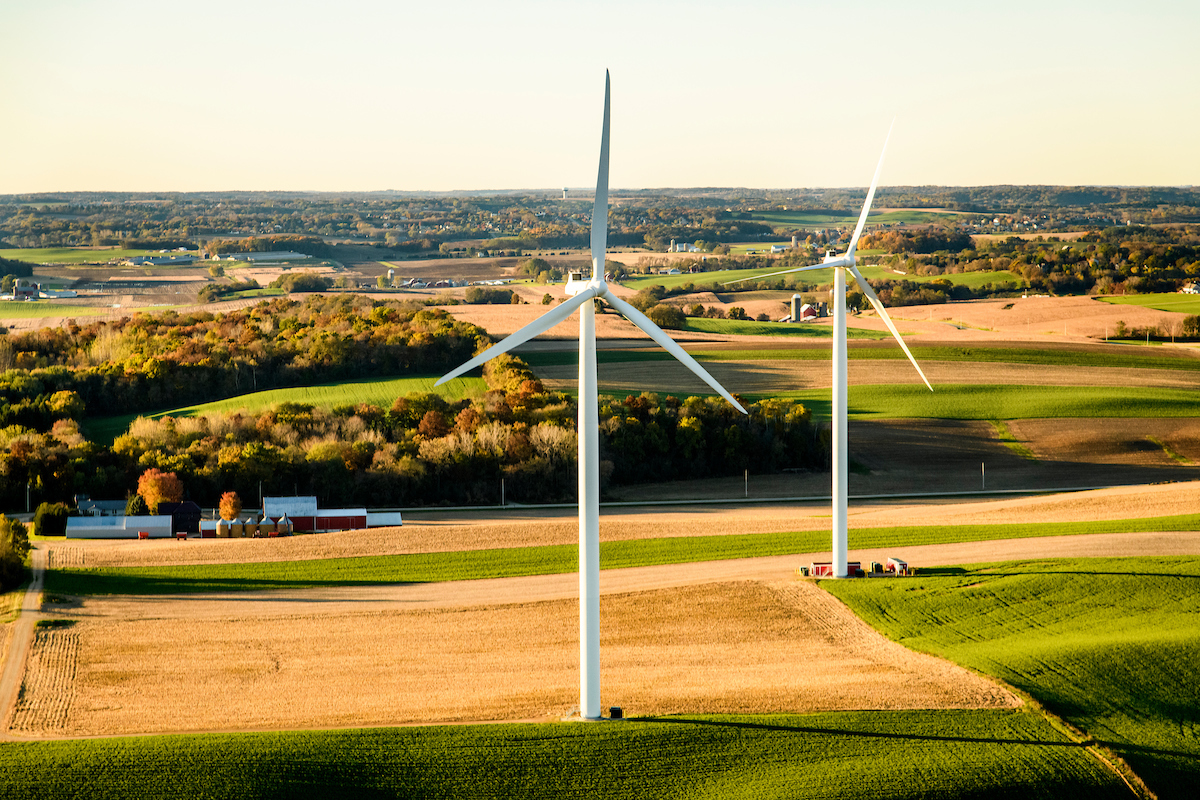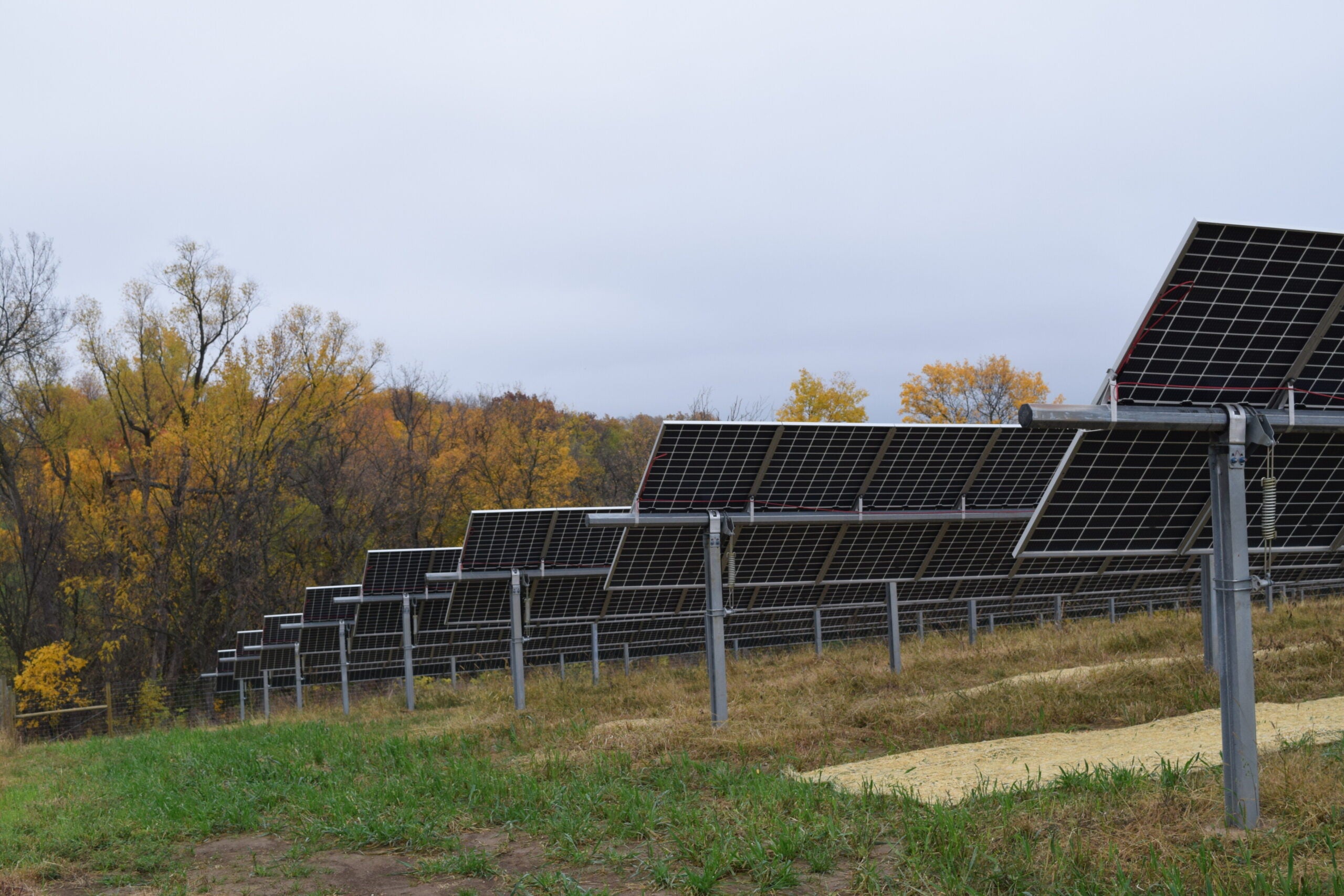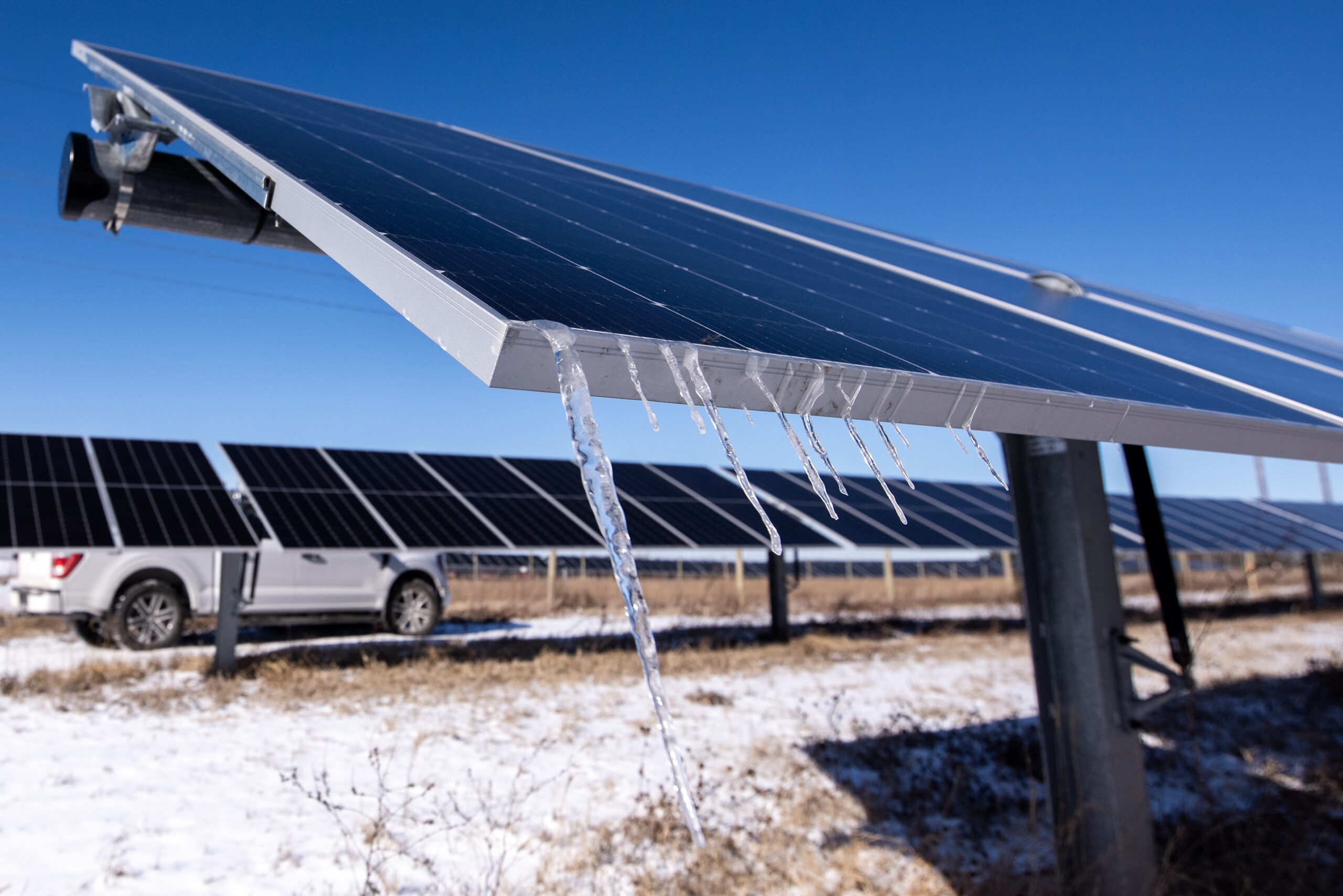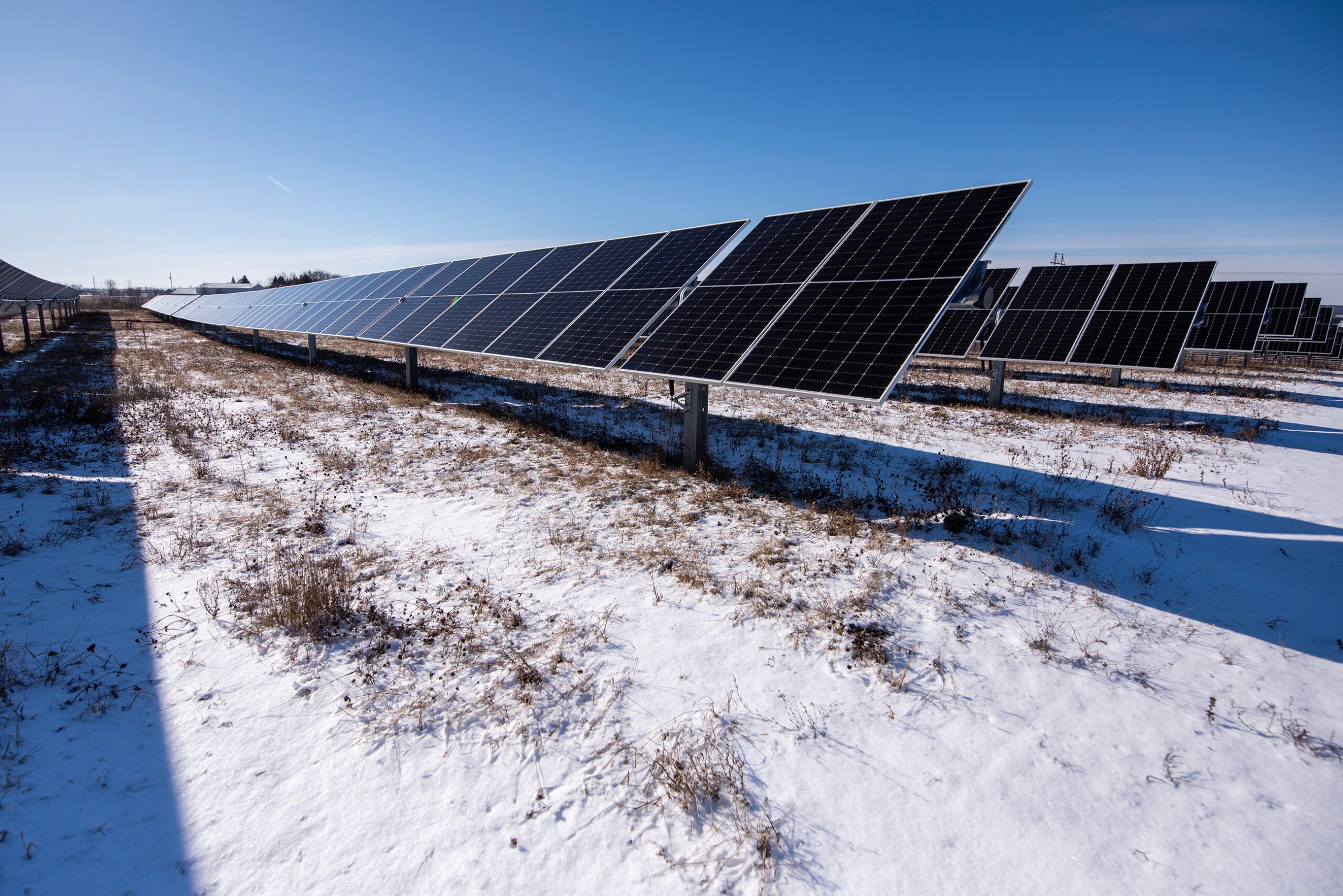Two central Wisconsin towns are being sued over wind ordinances they passed that are stricter than state regulations on such developments. It’s a case that could have ramifications for the state’s clean energy transition.
Both in Wisconsin and nationally, local opposition to renewable energy projects has become a “widespread and growing” issue, presenting a “significant impediment” to achieving climate goals, according to a new report from Columbia Law School’s Sabin Center for Climate Change Law.
The report identified at least 395 restrictions local governments across the country have placed on wind and solar projects, with 55 of those restrictions coming in just the last year.
News with a little more humanity
WPR’s “Wisconsin Today” newsletter keeps you connected to the state you love without feeling overwhelmed. No paywall. No agenda. No corporate filter.
“We need a ton of new wind and solar resources, and clean energy infrastructure in general, to meet our climate goals,” said Jake Elkin, a renewable energy legal defense initiative fellow at Columbia’s Sabin Center. “One big barrier to meeting those goals is either local opposition to renewable energy projects or local ordinances — regulations that severely limit or prohibit the building of wind and solar.”
One of the projects facing strong local opposition is the Marathon Wind Farm, a 98 megawatt project in western Marathon County being developed by EDP Renewables, a developer that does business across the globe.
Last week, EDP Renewables subsidiary Marathon Wind Farm LLC sued the towns of Brighton and Eau Pleine for their ordinances restricting wind farms, arguing both ordinances violate state law.
In fact, local ordinances or zoning restrictions were the leading cause of wind project cancellations over the last five years and the second leading cause of solar cancellations, according to a survey of renewable developers released in January by the Lawrence Berkeley National Laboratory.
In Wisconsin, the Columbia report identified at least nine towns in Marathon and Clark counties that have adopted ordinances more limiting than state law.
The ordinances in Marathon and Clark counties were adopted despite state law prohibiting local governments from placing restrictions on wind and solar unless those restrictions protect health and safety, do not significantly increase project costs or allow for an alternate system with roughly the same cost and efficiency.
Many of the local restrictions have been pushed by a nonprofit called “Farmland First,” framing wind and solar as threats to local health and agriculture. That’s despite research showing wind and solar do not harm human health, and can be beneficial to local farmers.
Trine Spindler, who works with the nonprofit and is running for state Assembly, said the organization has helped at least 13 local towns pass ordinances.
“We have basically spread the word about what happens when these complexes go up in your neighborhood,” she said. “We are leading the people of central Wisconsin to then choose if they want to live next to these complexes or not.”
A new report from the state’s Wind Siting Council, an advisory board appointed by the Public Service Commission, examined 59 peer-reviewed studies on the effects of wind turbines.
Only three studies suggested potential negative health impacts from wind turbines, but the Siting Council found “reasonable arguments” that would “question the legitimacy of their conclusions.” The report also says 12 studies identified “annoyance” as the biggest impact of wind turbine facilities.
Based on the research, the Wind Siting Council concluded that “most individuals living near wind energy systems do not experience detectable health effects directly caused by the wind turbines.”
Elkin said it’s pretty common nationally when renewable projects are proposed for local organizations to form and spread misinformation in opposition to wind or solar.
“Oftentimes those organizations’ websites are filled with things that we know to be untrue about impacts from either wind or solar,” he said. “That can have a huge impact on how these local siting battles play out.”
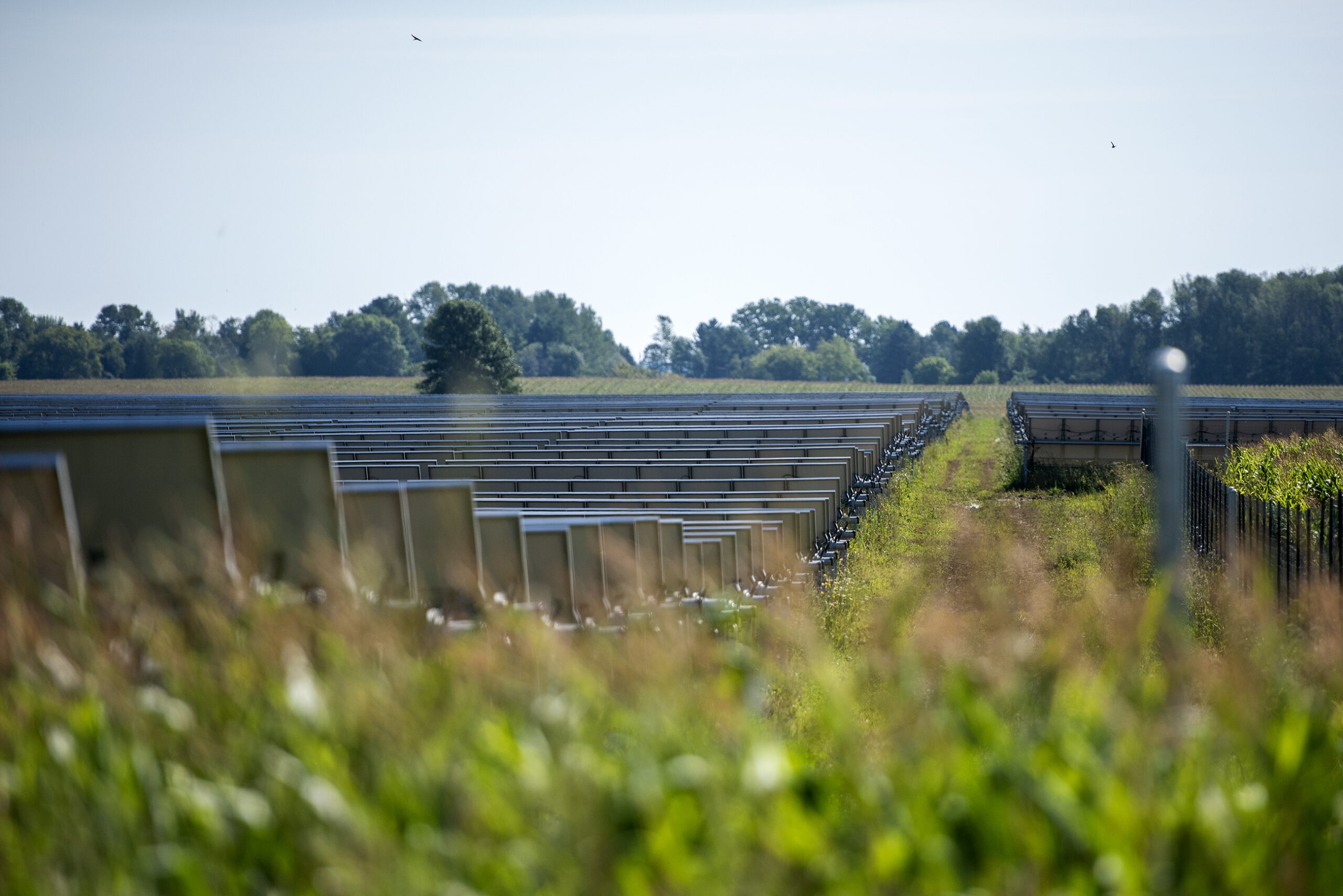
Wind developer sues 2 Wisconsin towns
Because the Marathon Wind Farm is under 100 megawatts, it doesn’t need the PSC’s approval. Rather, it needs local approval.
In the lawsuit, the developer estimates it has already invested more than $5 million in the project, and has lease agreements in place with roughly 65 different landowners for the wind energy system.
Brighton’s ordinance was enacted in May 2023, and Eau Pleine’s was enacted the following month, according to the lawsuit.
Officials in the town of Eau Pleine did not respond to requests for comment. But Brighton Town Board Chair Mark Krause shared a brief statement via email.
“The ordinance serves to protect property values, health and safety, and preserve the rural character,” Krause wrote. “That’s all I can say now.”
The lawsuit says the ordinances have made it “effectively impossible for any applicant to receive a license for a wind energy system.” The lawsuit also says the developer has “all but halted its development of its Wind Energy System” since the ordinances were enacted.
In a statement, Kris Cheney, EDP Renewables North America’s executive vice president of development in the Central & West regions, said the company’s priority was to work directly with the towns to find a “workable path forward.”
“EDP Renewables is focused on fulfilling our commitments to signed landowners who have chosen to use their property to host the Marathon County wind project,” Cheney said. “By continuing with our development process, we are seeking to honor these agreements we have in place with landowners in order to provide clean energy in Wisconsin.”
In the lawsuit, the developer asked the court for an injunction to stop the towns from enforcing the ordinances and to declare that both violate state law.
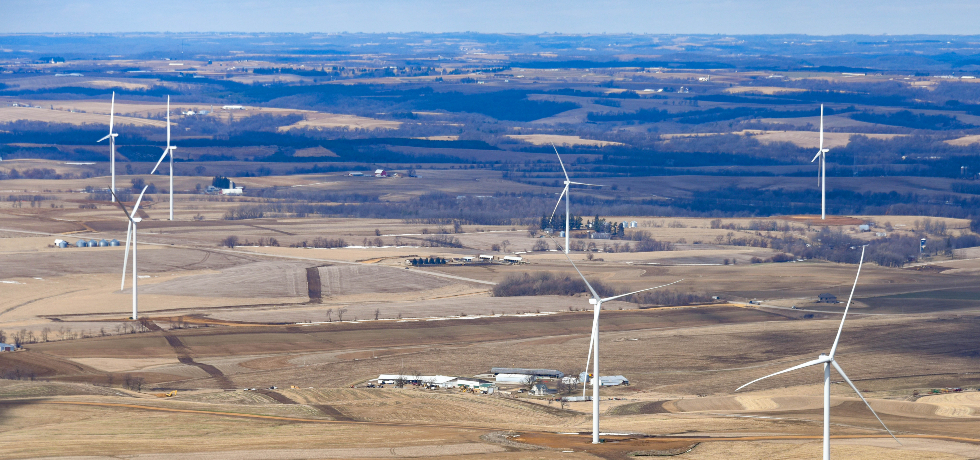
Are these ordinances legally enforceable?
While the lawsuit against the towns plays out in court, it could have major ramifications for similar restrictions across the state. Many of the central Wisconsin wind ordinances, for example, are nearly identical.
Elkin with the Sabin Center said the state law that limits local restrictions will likely be key to how this plays out.
“There is an opportunity to challenge some of these restrictions that may be in violation of state law,” he said.
But Spindler with Farmland First said overturning the ordinances would limit how town boards can protect the health and safety of their residents.
“If we have to take one of these ordinances in front of a court to prove our point, we are more than happy to do so,” she said. “Our town boards want to protect our health and safety. If you have to challenge the statutes that are on the books to do so, I mean, that’s how our system works.”
RENEW Wisconsin executive director Sam Dunaiski said ordinances often go beyond the legal scope of what municipalities’ oversight can be.
He said there have been instances where similar ordinances have been struck down in court when developers have challenged them. But many developers don’t want to be the one to challenge them.
“They want to work with the local officials, but just want to make it very, very clear that the law is not unfair on this matter,” he said. “The state has taken action through legislation. They have created laws, which the Public Service Commission enforces, which govern how these projects are permitted and approved.”
Wisconsin Public Radio, © Copyright 2025, Board of Regents of the University of Wisconsin System and Wisconsin Educational Communications Board.

